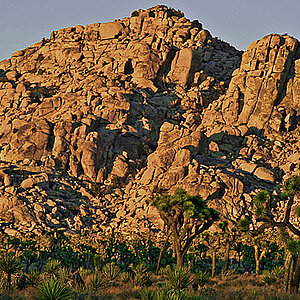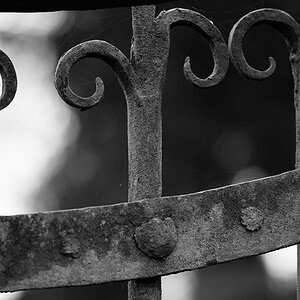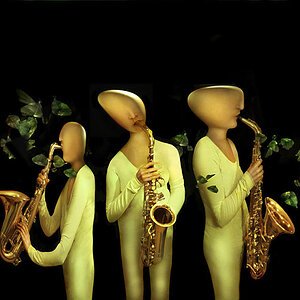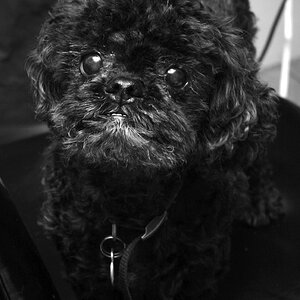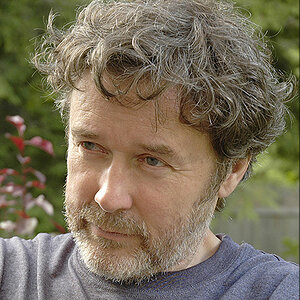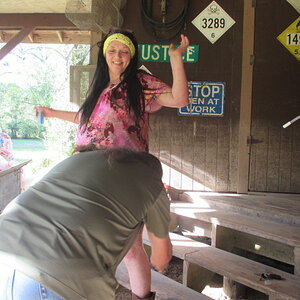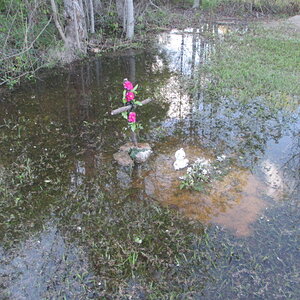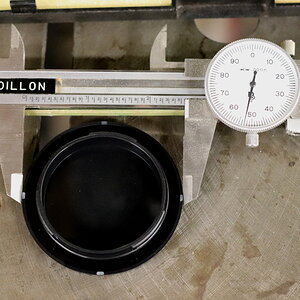Ysarex
Been spending a lot of time on here!
- Joined
- Nov 27, 2011
- Messages
- 7,139
- Reaction score
- 3,691
- Location
- St. Louis
- Can others edit my Photos
- Photos OK to edit
You didn't answer my question above.
If I had taken it using film it would have been B&W, because all my supplies film,paper, chemicals were bought in bulk. Color separations where to expensive at that time for newspaper work. That said, had I taken this shot back then, I would have overexposed, to increase contrast and capitalize on the reflections leading into the trees. Maybe something on the order of.this.
View attachment 121749
I would also have also tried an underexposed shot, though I think this look is better. I'm not sure the author was saying everything occurs in the camera, I think his statement was more to the effect that the availability of technology allows some to be "less careful or lazy" in getting everything right in camera, because they know there is so much that can be done to correct flaws later. I think he's using the term "more competent" as being able to make use of all the tools available from camera through computer, not as one replacing the other.
You don't have the benefit of having seen the original scene. That JPEG from the camera is not representative. I showed that as a way to illustrate the lighting problem that the scene presents.
Your original post definitely reads for me as a "get it right in camera" myth post -- no offense, but it is a common theme. It shows up a lot in the RAW versus JPEG blogs and debates where the JPEG shooter ultimately declares, "I'm a real photographer and not a graphic artist. I get my photos right SOOC," then slams the door and walks out.
If instead by "getting everything right in camera" your book author means, as a prelude to the rest of the process of creating the photo, then I can support that. The one real exception, and that's why I brought it up, is shooting transparency film. In a studio the tool that goes hand in hand with transparency film is the studio lighting. But under available light the only control you have is the camera. As a result then the photographer has to be selective and work with limited choices. A scene like the one above just isn't going to work and often the best thing a photographer loaded up with slide film can do is walk away, "wait for better lighting."
As such transparency film is an exacting discipline, AND with a limited range of acceptable outcomes. However negative film assumes the darkroom and so getting it right assumes the darkroom. Likewise digital capture assumes post processing and so getting it right assumes post processing.
So are people sloppier today with digital tools than they were in the past? I don't think so. Did I know film photographers in the past who would shoot with an untested camera and untested film and then try and beat a decent print out of a too thin or thick negative in the darkroom? Oh yes, many scores of them. Are they the same people who today shoot sloppily with an untested camera and try to patch it up in LR? Same people. In the amateur market today we have P&Shooters and back then we had Instamatic Shooters. The one thing that digital has done is just create a much larger group of participants.
Back to the Cypress trees. That's Big Oak Tree State Park, MO. The lake in the park literally dried up in the drought of 2012. One of the reasons the JPEG looks so bad and is not representative of the original scene is because I got the raw file right in camera. The best raw file is always the one that has the most exposure right up to the point of sensor saturation. The JPEG the camera makes from that will often appear washed out and overexposed. There's a nice dramatic sky there but because of the backlight you can't capture the sky with transparency film without seriously underexposing the foreground. So there's no get it right in camera option (someone out there is thinking graduated ND filter and that's why I picked this shot with the trees). I put the raw file (CR2) into DPP and reset the camera picture controls from neutral to landscape with +3 contrast and then dropped the exposure a stop and a half until the highlights in the sky were properly placed. This is probably a fair simulation of what transparency film in a camera would look like if exposed for the sky.
With B&W film we get Zone System controls and all the hoops we can jump in the darkroom. Getting it right in camera then is a prelude to finishing the job in the darkroom. The one single point that teachers of this practice stressed above all other points was what Ansel called pre-visualization. Everything hinged on your ability, while standing behind the camera, to see the final darkroom print. Otherwise how do you know what to get right in the camera? Getting it right meant getting the whole process right.
I shot the scene in color and I saw my final photo as a color image. So I'll show you that next. One thing I did do that's unique to digital tech is I applied a dark red filter to separate the clouds from the blue sky, only I did that and kept the photo in color. This is the photo I took and it required getting it right in camera so that I could get it right in post. Because of the tricky scene lighting it did require some involved post processing. One critical point about this photo: not possible at all using transparency film and not possible at all using the JPEG software in a digital camera. So getting the raw file right and then knowing how to do the post processing isn't a case of laziness behind the camera with a repair done in post it's a case of there's no other way to do this.
Here's a B&W conversion of the same photo:
Joe


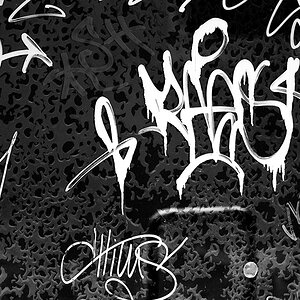
![[No title]](/data/xfmg/thumbnail/34/34041-c8aed4d2c55b167d1ec03d9cfbaca453.jpg?1619736250)

